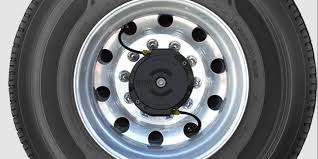In a hyper-competitive and constantly evolving automotive market, dealerships are expected to do more than just sell cars—they must build strong brands, deliver exceptional digital experiences, and convert online interest into physical sales. That’s where marketing companies come in. These specialized firms support automotive agencies by driving brand visibility, improving lead generation, and boosting return on investment through targeted campaigns and data-driven strategies. The role of car dealership marketing companies has become increasingly important as traditional marketing methods give way to digital-first strategies. This article explores how these companies operate, what services they offer, and the value they bring to automotive agencies looking to grow and thrive in today’s digital landscape.
- Understanding the Role of Marketing Companies in the Automotive Industry
- Conducting In-Depth Market Research and Strategy Development
- Building and Optimizing Digital Infrastructure
- Creating Targeted Advertising Campaigns
- Leveraging SEO and Local Search Strategies
- Producing Engaging Multimedia Content
- Implementing CRM Integration and Lead Management
- Monitoring Performance and Providing Actionable Insights
- Offering Ongoing Support and Strategic Consultation
- Conclusion
Understanding the Role of Marketing Companies in the Automotive Industry
Marketing companies that work with automotive agencies act as strategic partners. They are more than just vendors pushing ads—they are invested collaborators who take the time to understand the dealership’s market, goals, and unique selling points.
The primary role of these companies is to attract, engage, and convert potential car buyers through a mix of digital and traditional marketing tactics. They work closely with dealerships to create customized plans that align with business objectives such as increasing showroom traffic, boosting service department revenue, or moving aging inventory.
These companies often bring expertise in branding, local advertising, performance marketing, and online presence optimization. They bridge the gap between automotive sales goals and effective marketing execution, ensuring the agency is always one step ahead of the competition.
Conducting In-Depth Market Research and Strategy Development
A key step in the workflow of any automotive-focused marketing company is thorough market research. Before launching any campaign, these companies analyze local competitors, buyer personas, vehicle demand, seasonal trends, and dealership performance data.
Using tools like Google Trends, local SEO software, and CRM analytics, they identify what local buyers are searching for and when they are most likely to buy. This allows them to craft strategies that are not only targeted but also timed to maximize impact.
Strategy development includes defining the dealership’s brand voice, selecting key messaging themes, identifying preferred channels (like Google Ads, Facebook, or email), and setting goals. This foundation ensures all future marketing activities are cohesive and effective across platforms.
Building and Optimizing Digital Infrastructure
An automotive agency’s digital infrastructure includes everything from its website to its social media profiles. One of the first tasks of a marketing company is to assess and improve these touchpoints. The website, in particular, must be mobile-friendly, fast, SEO-optimized, and integrated with key features like inventory listings, financing tools, and lead capture forms.
Marketing companies often work with web developers and designers to ensure the user experience is streamlined and conversion-focused. They also implement tools such as Google Analytics, heatmaps, and conversion tracking to monitor how users interact with the site.
Social media channels are reviewed and updated for consistency, branding, and performance. Marketing companies will then align the dealership’s messaging across platforms to ensure a professional, engaging presence that drives awareness and interaction.
Creating Targeted Advertising Campaigns
Paid advertising is one of the most valuable services provided by marketing companies. For automotive agencies, this typically includes search engine marketing (SEM), display ads, retargeting, and social media campaigns.
Using insights from earlier research, marketing companies design ad campaigns targeting specific demographics, geolocations, and customer interests. For example, they might create Google Ads campaigns aimed at users searching for “affordable trucks near me” or launch Facebook ads promoting a weekend sales event.
These campaigns are not static. Marketing companies continuously A/B test creative assets, analyze ad performance, and tweak targeting settings to improve results. The ultimate goal is to maximize ad spend efficiency while increasing website traffic, leads, and ultimately, car sales.
Leveraging SEO and Local Search Strategies
Search engine optimization (SEO) is crucial in helping dealerships appear at the top of search results when customers look for vehicles or auto services online. Marketing companies manage both on-page and off-page SEO, ensuring that dealership websites rank well for relevant keywords.
On-page SEO tasks may include optimizing meta titles and descriptions, improving internal linking, enhancing page speed, and producing blog content focused on automotive-related topics. For example, content like “Top 5 Fuel-Efficient SUVs for 2025” not only helps with SEO but also provides value to buyers.
Off-page SEO includes local directory submissions, backlink building, and Google Business Profile optimization. Marketing companies also manage online reviews to enhance local reputation, a critical factor in Google’s ranking algorithm and customer trust.
Producing Engaging Multimedia Content
Content creation is a central part of any effective marketing strategy. Marketing companies often produce a mix of formats—such as videos, blog posts, infographics, and email newsletters—to capture attention and provide information.
Video content, in particular, is highly effective for automotive agencies. Walkaround videos, dealership event recaps, customer testimonials, and how-to guides (like “How to Trade In Your Car”) all help to connect with consumers and drive engagement.
High-quality, relevant content not only attracts new visitors but also supports other marketing efforts like SEO and social media. Marketing companies work with in-house creative teams or external partners to produce professional content that aligns with the dealership’s goals and voice.
Implementing CRM Integration and Lead Management
Leads are only valuable if they’re followed up with effectively. That’s why marketing companies often help automotive agencies integrate Customer Relationship Management (CRM) systems into their digital workflow. These systems allow dealerships to track leads, monitor interactions, and follow up at the right time with the right message.
Marketing companies help configure the CRM to capture leads from various channels—website forms, phone calls, chat, and ads—and ensure that sales teams are notified instantly. They also segment leads based on behavior and intent, enabling personalized marketing campaigns via email or SMS.
By linking marketing platforms with CRM tools, companies create closed-loop systems that not only generate leads but also track them all the way through the sales funnel.
Monitoring Performance and Providing Actionable Insights
One of the greatest advantages of working with a marketing company is access to ongoing performance tracking and data-driven insights. These companies regularly provide reports that highlight key metrics such as impressions, clicks, cost per lead, bounce rate, and sales attribution.
Using tools like Google Data Studio, dashboards are built to visualize campaign performance in real-time. This transparency allows automotive agencies to see exactly where their marketing dollars are going and which tactics are yielding the best return.
Marketing companies also hold regular strategy reviews to discuss campaign results, identify new opportunities, and adjust strategies accordingly. This agile, results-oriented approach ensures continuous improvement and long-term growth.
Offering Ongoing Support and Strategic Consultation
Beyond campaign execution, marketing companies provide ongoing consultation to ensure the dealership stays aligned with industry trends and market shifts. Whether it’s preparing for seasonal promotions, launching a new vehicle model, or responding to competitor moves, they offer guidance and strategic planning tailored to the dealership’s goals.
These companies act as long-term partners, offering flexible support as business needs change. Their ability to scale services up or down, introduce new tools, and stay ahead of digital trends ensures that the automotive agency remains competitive and relevant.
Conclusion
Marketing companies play a critical role in helping automotive agencies succeed in an increasingly digital and customer-driven landscape. By offering a comprehensive range of services—from strategic planning and digital infrastructure to SEO, content creation, and CRM integration—they empower agencies to reach more buyers, convert more leads, and grow their businesses sustainably. Their value lies not only in execution but in the partnership they bring—aligning with dealership goals, adapting to market shifts, and consistently delivering measurable results. For any automotive agency looking to gain a competitive edge, teaming up with the right marketing company is more than a good decision—it’s a growth catalyst.

















